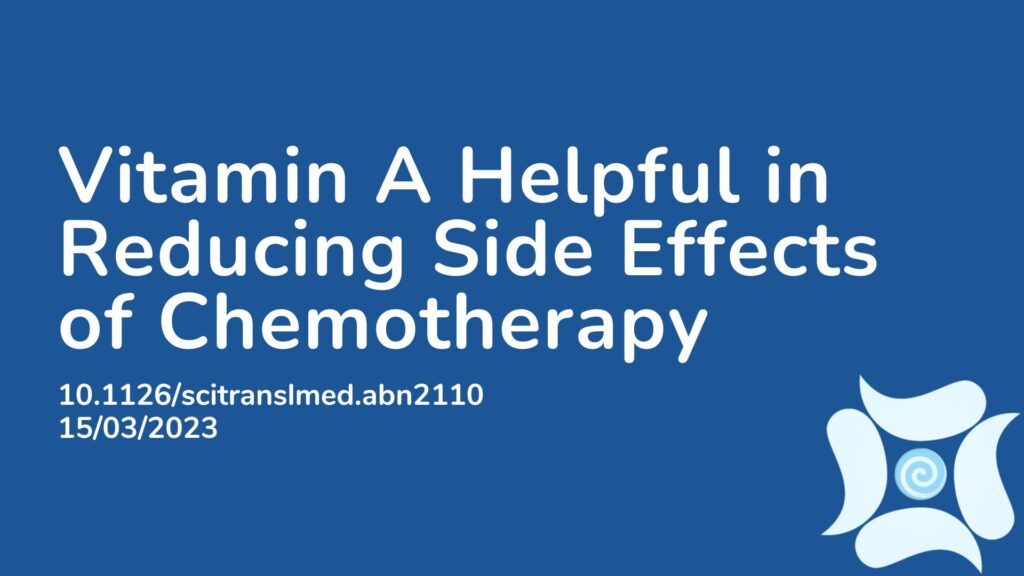Summary:
Adverse events from common drugs are a major health concern globally. In the USA, there are approximately 24 million adverse events reported to the Federal Drug Administration annually and approximately 14 million of them are deemed serious. Acute Lymphoblastic Leukemia (ALL) which is a cancer commonly seen in children, requires treatment with the enzyme asparaginase (a chemotherapy drug) which helps starve the cancer cells. Approximately 2-10% of users being administered this medication develop inflammation in the pancreas which can be serious and life threatening. The authors of this paper assessed whether vitamin A played a role in counteracting some of these side effects and found that consuming a diet containing sufficient vitamin A may help ALL patients reduce their risk of developing inflammation in the pancreas. The results also showed that inflammation in the pancreas is more likely to progress with an insufficient vitamin A intake.
Abstract:
Among drug-induced adverse events, pancreatitis is life-threatening and results in substantial morbidity. A prototype example is the pancreatitis caused by asparaginase, a crucial drug used to treat acute lymphoblastic leukemia (ALL). Here, we used a systems approach to identify the factors affecting asparaginase-associated pancreatitis (AAP). Connectivity Map analysis of the transcriptomic data showed that asparaginase-induced gene signatures were potentially reversed by retinoids (vitamin A and its analogs). Analysis of a large electronic health record database (TriNetX) and the U.S. Federal Drug Administration Adverse Events Reporting System demonstrated a reduction in AAP risk with concomitant exposure to vitamin A. Furthermore, we performed a global metabolomic screening of plasma samples from 24 individuals with ALL who developed pancreatitis (cases) and 26 individuals with ALL who did not develop pancreatitis (controls), before and after a single exposure to asparaginase. Screening from this discovery cohort revealed that plasma carotenoids were lower in the cases than in controls. This finding was validated in a larger external cohort. A 30-day dietary recall showed that the cases received less dietary vitamin A than the controls did. In mice, asparaginase administration alone was sufficient to reduce circulating and hepatic retinol. Based on these data, we propose that circulating retinoids protect against pancreatic inflammation and that asparaginase reduces circulating retinoids. Moreover, we show that AAP is more likely to develop with reduced dietary vitamin A intake. The systems approach taken for AAP provides an impetus to examine the role of dietary vitamin A supplementation in preventing or treating AAP.
Article Publication Date: 15/03/2023
DOI: 10.1126/scitranslmed.abn2110



